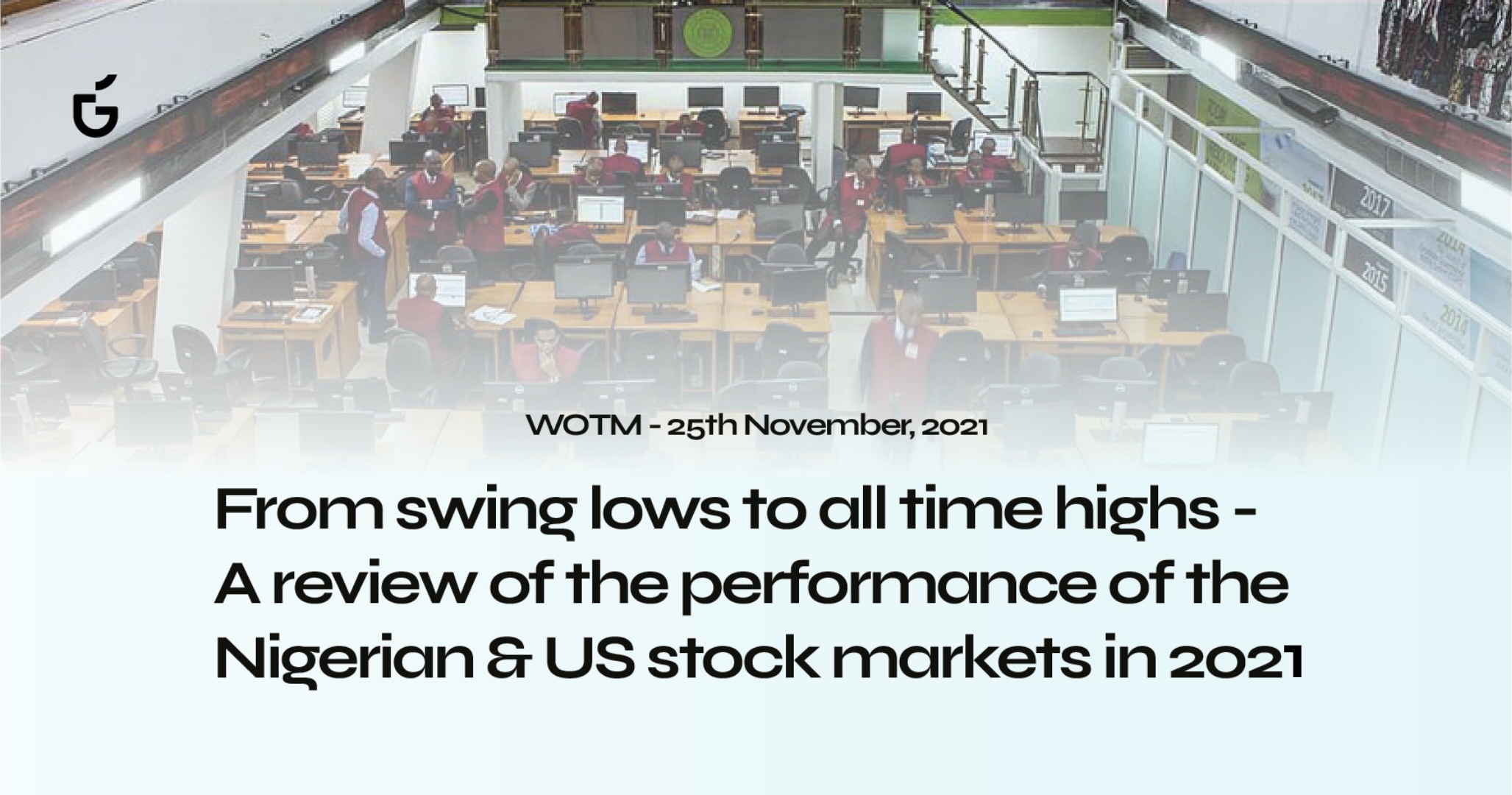 Africa
AfricaUnderstanding how companies are valued – A look into the MainOne acquisition
15 December, 2021
02 February, 2021 | 4 MINS READ
When it comes to inflation in Nigeria, here is what you need to know. The Consumer Price Index (CPI) ,which measures the prices of goods and services, increased every single month in 2020.
Source: CBN Inflation Statistics
Inflation rate in January 2020 was 12.13%, 12.56% by June and shot up to 15.75% in December 2020. When investing in the Nigerian economy today, the rate of increase in inflation must be considered carefully. As an investor, you have to ensure your investment plans earn you a real rate of return that can beat or at least keep up with the rate of increase in inflation.
Learning and applying the right investment strategy will help you avoid the ache of loosing the value of your investment portfolio to the malevolent powers of double-digit inflation.
Why has inflation increased every month? The upward movement of inflation rates was triggered by three major factors: Land border closure, FX restrictions and lower interest rates.
In August 2019, the Federal Government of Nigeria closed its land borders to neighbouring countries to improve the country’s food sufficiency. As a result of the closures, food demand exceeded food supply and the price of food items spiked.
The value of the Naira to the US Dollar was adjusted a couple of times last year. This drastically dropped the value of the Naira. Importing goods into the country is way more expensive than it was in Q1 2020. When imports become more expensive, the outcome reflects on retail prices of goods and services.
While the complaints on the land border closures ensued, and the value of the Naira fluctuated endlessly last year, the CBN decided to slash the monetary policy rate from 12.5% to 11.5% as opposed to sticking to the traditional means of raising interest rates when inflation rate keeps increasing interest rates directly impact the price of money. Typically, the banks raise interest rates to curb consumer spending when inflation rates spike to stabilize the prices of goods and services but this did not happen.
Investors who are not cautious of this interest rates may watch returns earned on investments chewed up by inflation in 2021.
Inflation cannot be completely controlled , due to the factors outlined above, therefore investors need to ensure that their portfolios are made up of value investments that hedge against inflation risk. To do this, you need to understand how each asset class is affected by inflation.
Traditional and alternative investments are affected by inflation in different ways, to remember this easily, note that in high inflationary economies the following asset classes outperform the markets; Stocks (Valuable companies), Real Estate and Agriculture. However, fixed income securities such as bonds, commercial papers, treasury bills offer lower returns.
The best way to hedge against inflation risk is to diversify your investment portfolio. Diversification is a risk management strategy that mixes a wide variety of investments within a portfolio. A diversified portfolio contains a mix of distinct asset types and investment vehicles in an attempt at limiting exposure to any single asset or risk. It aims to maximize returns by investing in different areas that would each react differently to the same event.
 Africa
Africa15 December, 2021
 Africa
Africa09 December, 2021
Join the biggest
investment club in Nigeria.